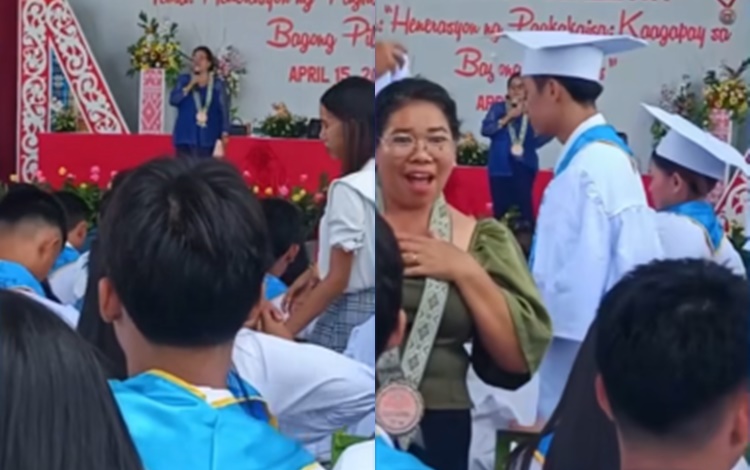Graduation day turned sour for Senior High School students of Col. Ruperto Abellon National High School in Laua-an, Antique, after their principal allegedly ordered them to remove their toga in the middle of the ceremony.

A viral video circulating online captured the moment the principal, while speaking onstage, instructed the graduates to take off their toga. The instruction was met with confusion and visible disappointment from students, parents, and guests who were present at the event. What should have been a joyful and proud moment became a scene of frustration and disbelief.
In the video, a man—believed to be a teacher—can be seen approaching the stage, seemingly questioning the principal’s directive. Moments later, other faculty members intervened, calming the situation and guiding the man off the stage.
Many netizens expressed support for the students and criticized the principal for allegedly ruining what they consider a “once-in-a-lifetime” experience. Some parents also reportedly gathered after the ceremony to express their concerns, saying their children had pleaded to wear their toga for the symbolic moment they had long awaited.
DepEd Order No. 009, s. 2023 clarifies that wearing a toga or sablay for End-of-School-Year (EOSY) rites is permitted under the K to 12 Basic Education Program but not mandatory. Despite this, the decision to prohibit the toga mid-event remains controversial, with many questioning the timing and manner in which it was enforced.
As of writing, RMN Iloilo has reported efforts to reach both the school’s administration and concerned parents to shed light on both sides of the issue. The principal has yet to release an official statement explaining the reason behind the directive.
The incident has sparked debate on social media, with many calling for clearer communication and more student-friendly decisions during such milestone events. Meanwhile, others are urging the Department of Education to issue guidance to schools to prevent similar situations in the future.
What was supposed to be a day of celebration has now turned into a topic of public discourse—underscoring the importance of empathy, preparedness, and proper handling of special moments in the lives of Filipino youth.
